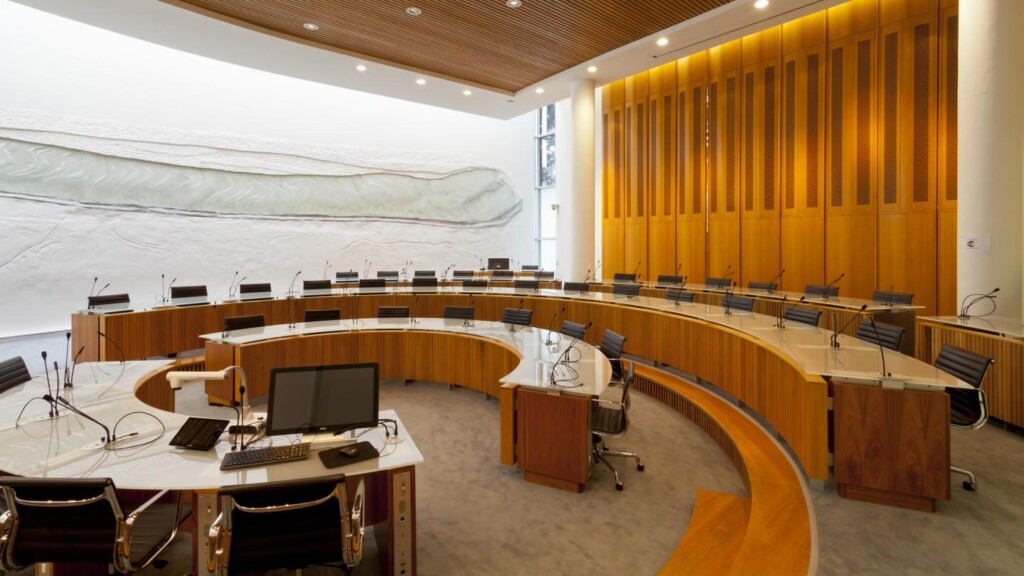The legendary rapper Ice Cube documented a perfect day in his 1993 single It Was A Good Day where he outlined an ideal day in his hometown of Los Angeles.
He enjoys a nice breakfast, his favourite basketball team wins a big game, smog doesn’t cover the city like it usually does, and enjoys time with his friends.
No political scientist of note has adapted “The Ice Cube Doctrine” when discussing what makes a perfect day for a political party, but in the name of making politics appealing to a new generation of voters, we are adapting the words of Mr. Cube.
This week, we are outlining what would make a good day for each of the nation’s major political parties ahead of elections to Dublin City Council and Fingal County Council.
Fianna Fáil had the best day out of the major parties in 2019, foreshadowing that Ireland’s voters had forgiven them for the transgressions of the last decade and voted them back into power in 2020.
The party became the biggest party on both councils that day, securing 8 of the 40 seats on Fingal County Council and 11 of the 63 available seats on Dublin City Council.
In 2024, a good day would mean holding those seats for Fianna Fáil.
At time of writing, Fianna Fáil are running 16 candidates on Dublin City Council compared to the 24 they ran in 2019 on Dublin City Council.
It is a similar situation in Fingal, where they are running 11 candidates compared to the 19 they ran in 2019.
Containment is the name of the game for Fianna Fáil this June and holding onto seats instead of trying to win more appears to be the objective.
A fairly steep drop-off in declared candidates could imply many things; it could be interpreted that the party is having difficulty in attracting candidates to run in Dublin, or it only has confidence that their incumbent elected reps could get re-elected and want to leave well enough alone without throwing a running mate into the mix.
With that said, Fianna Fáil are running two candidates in 5 of the 9 Dublin City Council constituencies; in those cases, they have confidence in their incumbent being re-elected and will hit and hope that their 2nd candidate will gather enough transfers.
Fine Gael are in a similar position; 15 candidates have been declared for Dublin City Council, while they are running just 9 for Fingal County Council.
Compared to 2019, the drop in Fine Gael’s declared candidates isn’t as dramatic as Fianna Fáil’s (for reference, Fine Gael ran 17 candidates on Dublin City Council in 2019 and 13 on Fingal County Council that same year) but it could also be read that the party are also looking to play it safe.
The Greens were the star of the show in 2019, becoming the 2nd largest party on Dublin City Council and scooping 5 seats on Fingal County Council, but 2024 is a very different set of circumstances for the party.
The Greens only need to look to 2009 as proof of what happens when voters don’t approve of your participation in a coalition.
On that occasion, the Greens were wiped from both Fingal and Dublin City Council.
While the majority of Green local reps have strong media profiles and people tend to vote for the candidate instead of the party at a local level in Ireland, the Greens only need to look into their recent past as an example of what could go wrong.
It is unlikely that 2009 will repeat itself for the party, but it is also unlikely that 2019 will happen again for them either.
A good day for the Greens would be keeping half of the seats they have now and possibly getting or two new faces elected.
People playing along at home might recognise that Sinn Féin are treating the locals as their audition for the next general election, and no party stands to gain or lose more from June than them.
The party has every reason to be confident about becoming the biggest party on Dublin City Council come June, and if they play their cards right, could become the biggest party in Fingal too.
Sinn Féin are running a whopping 29 candidates for Dublin City Council this year; to put this into perspective, Fianna Fáil, at the height of the Celtic Tiger boom in 2004, ran 27 candidates that year.
Fianna Fáil’s 27 candidate jamboree was down from the 35 candidates they ran in 1999, and they ended up only getting 12 candidates on the day.
2004 was a relatively bad day for Fianna Fáil in Dublin, only getting 12 of their candidates elected, but that is the bare minimum Sinn Féin will expect this year.
Anything less than 10 Sinn Féin candidates being elected would be a disaster, but if the party can get a bakers dozen (and a few more) elected then it would bode well for their aspirations to run the country and show that their message is connecting with voters.
In Fingal, the party have committed to running 9 candidates so far, more or less the same amount of candidates they ran in 2019.
However, one gets the impression that Sinn Féin have their eyes on the prize; becoming the biggest party on Dublin City Council.
In all but one of the 9 constituencies, Sinn Féin are running more than one candidate, and as their 2023 local election performances in Northern Ireland showed the party has an uncanny ability to distribute votes among multiple candidates.
Part 2 will be published next week where we look at Labour, Social Democrats, People Before Profit/Solidarity, and whatever you’re having yourself.
